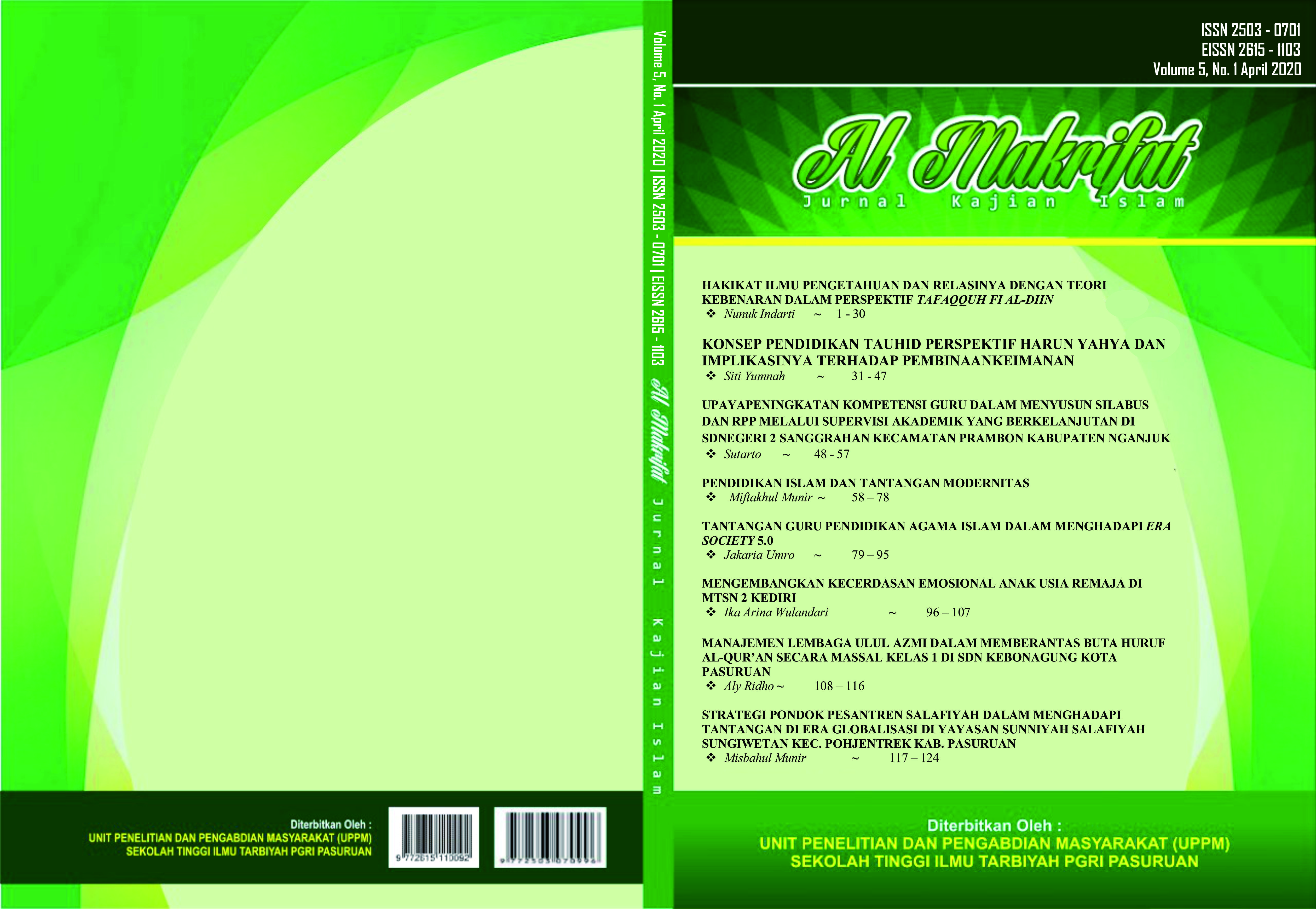Tantangan Guru Pendidikan Agama Islam Dalam Menghadapi Era Society 5.0
Abstract
The teacher is one component in education, including in Islamic religious education which is crucial to the success or failure of the objectives of Islamic religious education. In the teaching and learning process the teacher not only acts as a transmitter of knowledge, but is also responsible for the development of the learner's personality. The teacher must create a learning process in such a way that can stimulate students to learn effectively and dynamically in meeting and achieving the expected goals. Islamic education is currently faced with enormous challenges because it has not yet ended with the rolling of the industrial era 4.0, we are surprised by the emergence of the era of society 5.0 which must be faced and become its own challenges in the world of Islamic education. The formulation of the problem in this study is how the challenges of Islamic religious education teachers in facing the era of society 5.0. This research uses library research or library research. In data collection techniques researchers will explore data in accordance with the discussion of the challenges of Islamic religious education teachers in facing the era of society 5.0. Research results: Islamic religious education teachers must have 3 (three) abilities including the following: Ability to solve a problem, Ability to be able to think critically, and Ability to be creative in facing challenges arising from the emergence of the era of society 5.0.References
https://www.alinea.id/kolom/pendidikan-untuk-menyambut-masyarakat-5-0 b1XcI9ijL diakses tanggal 15 Januari 2020
Bahri Jamarah, Syaiful and Zain, Azwan. 2000. Strategi Belajar Mengajar. Jakarta: PT. Renika Cipta.
Dewey, John. 1964. Democracy and Education: An Introduction to The Philosophy of Education. New York: The Macmillan Company.
_________. 2005. “Eksperiences an Education†dalam James Wm., Taking Sides: Clashing Viwes on Controversial Educational Issues. America: Mc Graw-Hill Duskhin.
Fadjar, A. Malik. 1999. Reorientasi Pendidikan Islam. Jakarta: Fajar Dunia.
Madjid, Abdul. 2016. Strategi Pembelajaran. Bandung: Remaja Rosdakarya.
Mursidin. 2011. Profesionalisme Guru Menurut Al-Qur’an, Hadits dan Ahli Pendidikan Islam. Jakarta: Penerbit Sedaun Anggota IKAPI.
Polya, G. 1973. How to Solve it. (New Jersey: Princeton University Press.
Purwanto, Edy. 1999. Desain Teks Untuk Belajar “Pendekatan Pemecahan Masalahâ€. Jurnal IPS dan Pengajarannya.
Rahadian, Pradipta Rizaldy, 2019, Masyarakat Baru, 5.0 https://www.qureta.com/post/masyarakat-baru-5-o diakses tanggal 16 Januari 2020
Rojko, Andreja. 2017. Industry 4.0 Concept: Background and Overview. ECPE European Center for Power Electronics e.V. Vol. 11. (Nuremberg: Germany.
Sajadi, Maryam dkk. 2013.. The Examining Mathematical Word Problems Solving Ability Under Efficient Representation Aspect. International Scientific Publications and Consulting Services. Journal of Mathematics.
Semiawan, Conny R. 1999. Perkembangan dan Belajar Peserta Didik. Jakarta: Direktorat Jenderal Pendidikan Tinggi Proyek Pendidikan Guru Sekolah Dasar Departemen Pendidikan dan Kebudayaan.
Sutarsih, Cicih. 2012. Etika Profesi. Jakarta: Direktorat Jendral Pendidikan Islam, Kementerian Agama RI.
Tohirin. 2005. Psikologi Pembelajaran PAI. Jakarta: Raja Grafindo Persada.




